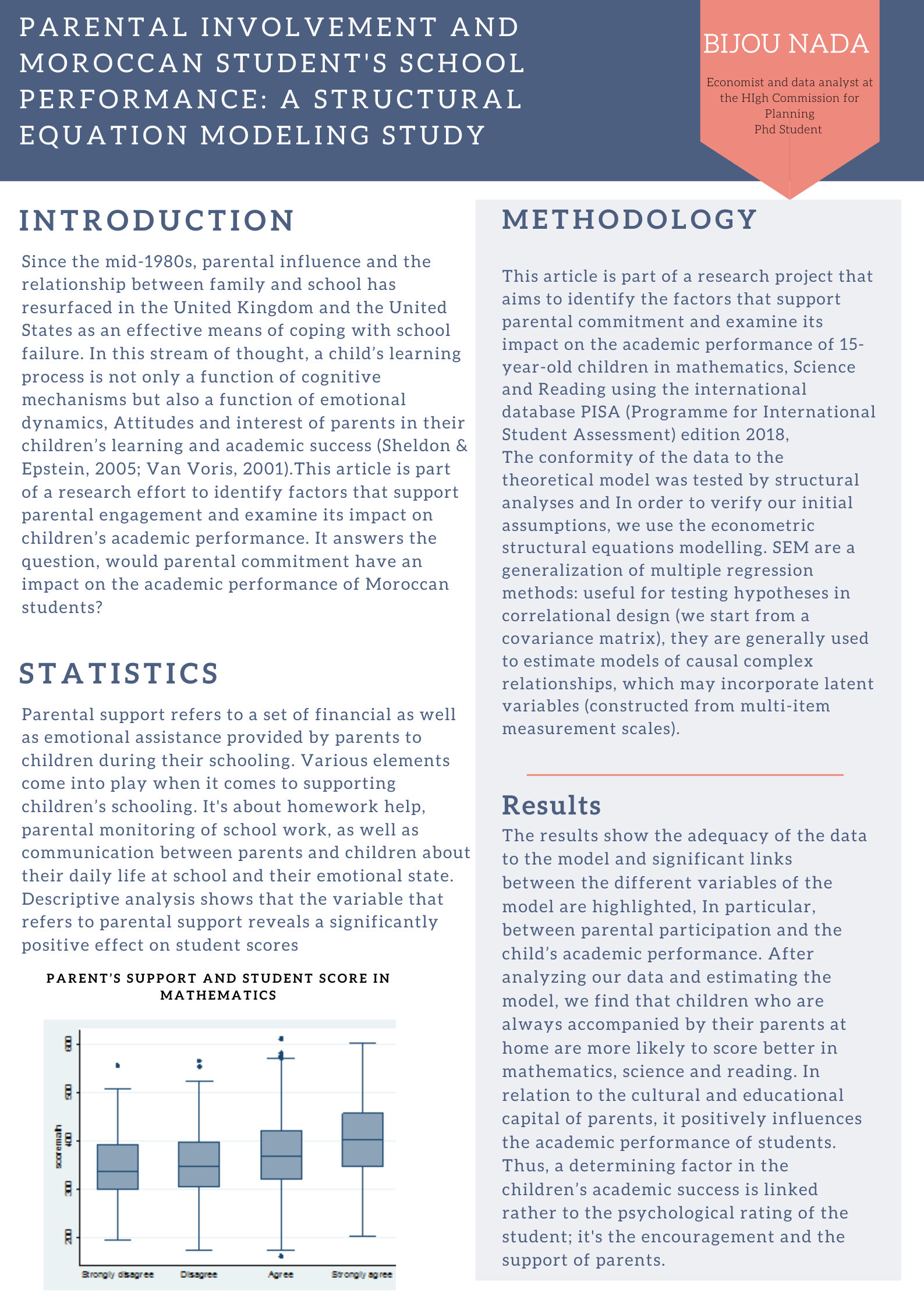Parental involvement and Moroccan student's school performance: A Structural Equation Modeling study
Conference
64th ISI World Statistics Congress
Format: CPS Poster
Keywords: parental involvement,, pisa2018, schoolperformance, structural equation modeling
Session: CPS Posters-05
Tuesday 18 July 4:20 p.m. - 5:20 p.m. (Canada/Eastern)

Abstract
Since the mid-1980s, parental influence and the relationship between family and school has resurfaced in the United Kingdom and the United States as an effective means of coping with school failure. In this stream of thought, a child’s learning process is not only a function of cognitive mechanisms but also a function of emotional dynamics, Attitudes and interest of parents in their children’s learning and academic success (Sheldon & Epstein, 2005; Van Voris, 2001). Studies suggest a link between parental participation, social belonging and student achievement, and that good student achievement requires increased parental support. In Morocco, no one doubts the inevitable role of the societal and parental sector in education. For the past two decades, however, the Moroccan school has suffered from chronic dysfunction in terms of training and values, this leads us to dig deeper into the elements that affect the most the performance of students, whether at school or at home. This article is part of a research project that aims to identify the factors that support parental commitment and examine its impact on the academic performance of 15-year-old children in mathematics, Science and Reading using the international database PISA (Programme for International Student Assessment) edition 2018, it’s a standardised assessment jointly developed by the participating countries. In 2018, 79 countries participated in PISA. The sample size is about 600,000 students representing about 32 million 15-year-old students in schools in 79 participating countries.
The conformity of the data to the theoretical model was tested by structural analyses and In order to verify our initial assumptions, we use the econometric structural equations modelling. SEM are a generalization of multiple regression methods: useful for testing hypotheses in correlational design (we start from a covariance matrix), they are generally used to estimate models of causal complex relationships, which may incorporate latent variables (constructed from multi-item measurement scales).
The aim of this study was to observe the effect of parental involvement on the educational performance of their children. The results show the adequacy of the data to the model and significant links between the different variables of the model are highlighted, In particular, between parental participation and the child’s academic performance. After analyzing our data and estimating the model, we find that children who are always accompanied by their parents at home are more likely to score better in mathematics, science and reading. In relation to the cultural and educational capital of parents, it positively influences the academic performance of students. Thus, a determining factor in the children’s academic success is linked rather to the psychological rating of the student; it is the encouragement and support of parents.
